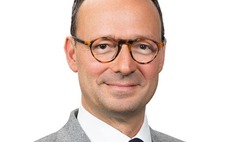
The sector specialists
Middle market deals have been a sweet spot in for PE firms in Asia, but competition in is also intense in the U.S. Sector-specific knowledge could be the key to success, as AVCJ finds out from Tony de Nicola, Co-President of Welsh, Carson, Anderson & Stowe.
Q: WCAS is a well known firm in the U.S. but many Asian readers may be unfamiliar with it. Can you talk a bit about the firm and your strategy?
A: Welsh, Carson, Anderson & Stowe is a private equity firm, which was founded over 32 years ago. We have organized 15 limited partnerships with total capital of $20 billion and focus on two industry sectors - healthcare and information/business services. We invest both equity and mezzanine funds. WCAS differentiates itself from other private equity firms by its industry specialization, investment track record, operational investment focus, repeat management teams and the experience of its General Partners.
Q: What opportunities are you seeing in the middle market space?
A: The two industries on which we focus, healthcare and information/business services, represent over 25% of the U.S. GDP. We regularly analyze our two industries in-depth to identify sub-sectors with attractive investment characteristics. For example, after targeting medical laboratories and dental facilities in the healthcare industry, we made investments in those areas during the last year. We also invested in global on-line payments as well as hosting and managed services on the information/business services side.
Q: How has the private equity market changed in terms of structures, financing and exits, in the U.S. since the GFC?
A: The recession caused tremendous dislocations in both financing and investing. During 2010, the debt markets rebounded tremendously with more than $320 billion of high yield issuance in the U.S. alone. This has allowed us to access the syndicated loan and high yield markets to refinance existing portfolio companies and finance new deals.
After a very good run in 2010, the equity markets are off to a strong start again. This has enabled private equity sponsors to execute IPOs for their portfolio companies, which was not an exit alternative during the GFC. As a result, we took two companies public during the last two years and are working on potentially a few more deals this year.
Q: How about seller expectations and valuations?
A: The gap between sellers and buyers has narrowed as the economy has stabilized and valuations have increased. Valuations had risen during the heat of the market in the 2006/2007 period when we saw companies being sold at average EBITDA multiples in the 9.5-10x range. In 2009, average acquisition valuations fell to around 7.5x EBITDA. Over the last year, purchase multiples started to increase to an average of 8.5x EBITDA as they followed the rise in the public markets.
Q: How do you add operational value to your portfolio companies?
A: Over the last 5-6 years, our firm has built the WCAS Resources Group, which comprises around 25 experienced executives from various operational and management backgrounds. They focus on providing our mid-size companies with best-in-class operational capabilities akin to Fortune 100 companies.
With our Resources Group, we are able to work with the management teams of our portfolio companies on a number of critical projects and initiatives that drive value creation for these companies. The Group includes executives focused on human resources, pricing, sourcing and finance as well as general management. We also have one executive that works with our portfolio companies on capital markets, balance sheet and liability management activities. He assists them in obtaining optimal market pricing on their financings. Last year, our portfolio companies financed approximately $6 billion in the debt markets.
Q: Do your investees have a presence in Asia?
A: Many of our portfolio companies have operations that are global in nature. One of the businesses that we own is called OHL, which is a logistics outsourcing company with offices across Asia. They serve some of the largest companies in the world with supply chain management from point of manufacture to point of sale. We own another company, GlobalCollect, which is an online payment processor with activities in Asia. They are looking actively to expand their presence in Asia. We also have a portfolio company called NEWAsurion, which is rapidly expanding its relationships with many of the largest mobile device providers in Asia. They provide technology protection for mobile applications.
Q: Will you consider partnering with Asian private equity firms if they have deals in your sectors of focus?
A: One of the ways that we are most comfortable making deals outside of the U.S. is partnering with local private equity sponsors. We believe that our industry expertise and domain knowledge are very valuable assets and complement the regional knowledge of local private equity sponsors. We can assist with strategic issues while they help us navigate regional issues.
Latest News
Asian GPs slow implementation of ESG policies - survey
Asia-based private equity firms are assigning more dedicated resources to environment, social, and governance (ESG) programmes, but policy changes have slowed in the past 12 months, in part due to concerns raised internally and by LPs, according to a...
Singapore fintech start-up LXA gets $10m seed round
New Enterprise Associates (NEA) has led a USD 10m seed round for Singapore’s LXA, a financial technology start-up launched by a former Asia senior executive at The Blackstone Group.
India's InCred announces $60m round, claims unicorn status
Indian non-bank lender InCred Financial Services said it has received INR 5bn (USD 60m) at a valuation of at least USD 1bn from unnamed investors including “a global private equity fund.”
Insight leads $50m round for Australia's Roller
Insight Partners has led a USD 50m round for Australia’s Roller, a venue management software provider specializing in family fun parks.







